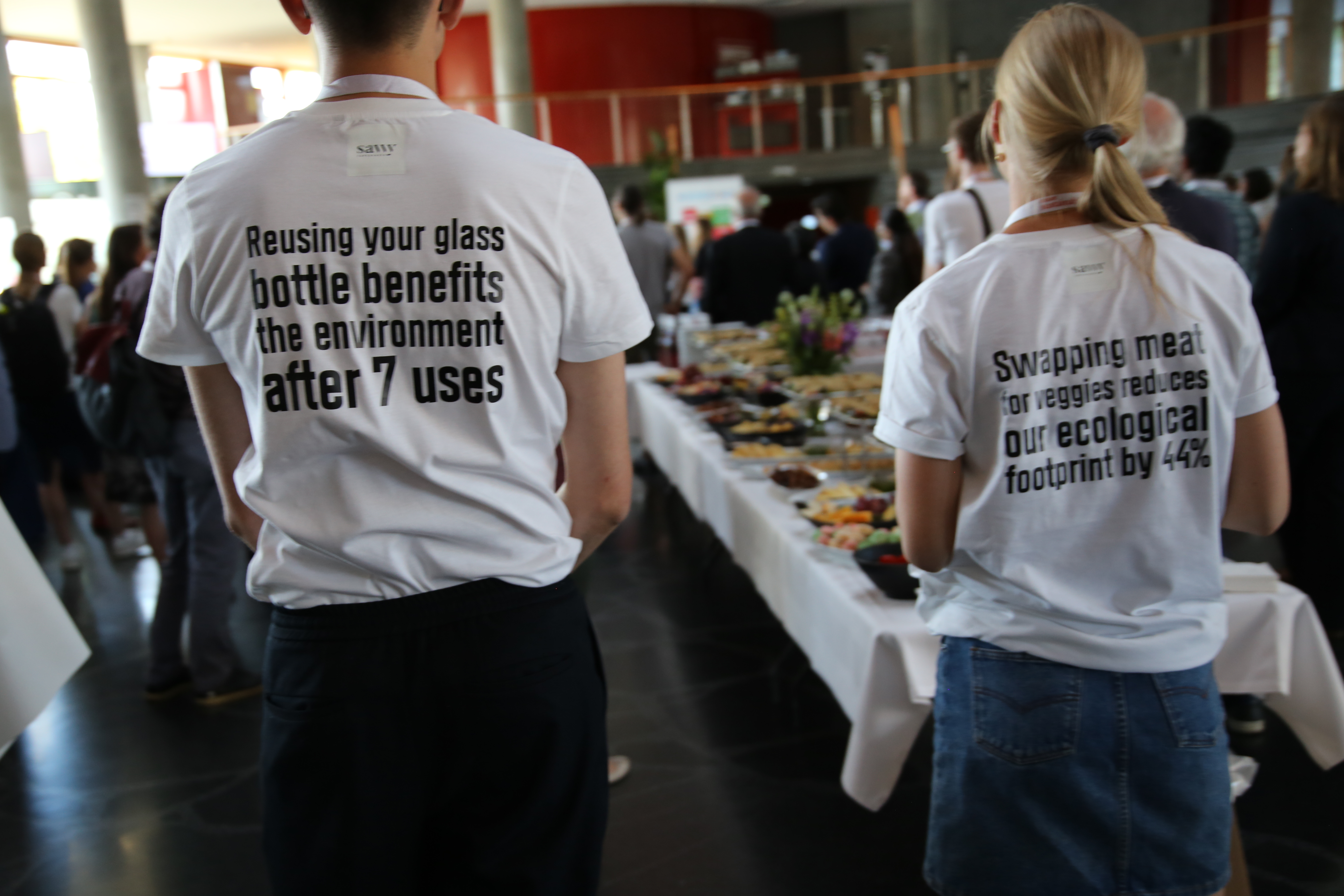By Oliver Laier.
This entry is not one of the usual kind. Rather you will find thoughts about this blog as such, its motivation, relevance, and a recap of articles posted in the last few months.
A researcher-blog is a particular thing, the description itself, researcher blog, appears contradictive in the first place. Typically, the researcher’s publishing realm are journals, contributions to textbooks or own publications. Whereas a weblog is typically loosely written, open for ex post published critique and comments, a researcher publication is as clear and precise in language as possible, and peer-reviewed before the print or upload. Scientific papers rarely feature colourful pictures to draw attention, and they always exceed 500 words. Blogs are often about opinions on certain topics, provoke, deal with actual events or contemplate issues; a paper ideally generates insight, knowledge and facts, only as far as possible.
So, why is CBS’ Centre for Corporate Social Responsibility (cbsCSR) and the Governing Responsible Business (GRB) research environment maintaining this “Business of Society” (BOS) blog, not to mention the twitter, facebook and even instagram presences? Does it make any sense?
We think it does. Not only are we convinced that sustainability and the responsibility of business and society for a more sustainable future are of concern to everyone but we also believe that related topics and discussions from around and beyond CBS should get out fast to a broad audience, that is, via online publishing. The blog is not only aimed at the ones in the office next door, who might not yet know who is doing research on what, our department, other departments, other universities, in Denmark and abroad. We are also targeting students, practitioners, politicians, friends, family – basically everyone who is concerned with sustainability in some way.

The contributors span from big names in the field to not-yet-well-known PhDs, (visiting) professors, fellows, students, colleagues from other institutions, and guest contributors. We seek diversity on the blog, as sustainability is not one clearly defined ‘thing’. It is related to all kinds of fields and while the term itself stems from forestry, the contested expression is now informing environmental sciences, politics, economics and business; theory and practise; professional and private lives. What do you buy, how do we (want to) live, how about our children?
The Business of Society (BOS) blog is meant to expand every reader’s horizon and to engage you in critical thinking and discussion. Providing short entries in accessible language does not imply a lower relevance of the articles. Rather, it means that the proverbial, non-academic ‘grandmother’ can understand what is at stake and participate in a discussion. Having scientific thought from many different researchers in condensed form is also a source of inspiration for students or and soon-to-be PhDs. Following, a few selected articles are presented to give you a taste of this blog’s spirit and the people behind the articles.
From the Business of Society archive
Jan Bauer is associate professor at CBS and part of the Governing Responsible Business (GRB) Research Environment. He is doing research in the fields of health economics and consumer behaviour. In June, he contributed to this blog with an article about a sustainable food policy trial, here at the MSC department at CBS. A new choice architecture in regard to the food policy at the department reveals the power of defaults. However, Jan also emphasises the importance of the foundation of guiding principles in such nudging approaches. What is the best way to decide upon a new policy, scientific evidence or democratic process? Follow the link above to get a more comprehensive image of the nudge-experiment and its related issues.
Climate change solutions must naturally consist in a collective effort of different parties: various fields of research, politics, business; technology are often seen as candidates to deliver the solution(s) from a supply side, among others when it comes to decarbonisation. Yet, the demand side must not be overlooked either, knows Kristian Steensen Nielsen, PhD fellow in environmental behaviour change at CBS. In his article in July, he writes about a framework for assessing the potential of behaviour change for global decarbonisation, suggesting that demand-side behaviour change can offer a solution for long-term reductions in greenhouse gas emissions.
Pointing the fingers at others is easy. But before blaming somebody else, it is sometimes a good idea to look at one’s own backyard. To some people, the Chinese Social Credit system seems to be an idea stemming from 20th century dystopia literature and deserves critique. The Western backyard here would be what tech-industry giants and governments do with the (private) data, and how citizens think and (don’t) act about it. Dieter Zinnbauer and Hans Krause Hansen wrote a brilliant piece on the big fuss about a big policy plan. It is a bit longer but worth the time.
Is the cake really getting bigger? Sharing economy is such an omnipresent phenomenon and buzzword that few people ask what is behind it. Fact is, people have been sharing ever since they lived in communities. It can also be taken for granted that Airbnb and the like neither (re-)invented the sharing-concept, nor act upon non-profit or redistributive beliefs. Attila Marton, from our neighbouring department of digitalization at CBS, depicts in his article generic types of sharing economy platforms and why it is rather a not-so-sharing economy in the case of large-scale business models.

Granting the BOS readers a first taste of his upcoming book, Stefano Ponte from the Business and Politics department at CBS contributed an article based upon ‘just sustainabilities’ in a world of global value chains. Living in the Anthropocene (or, the capitaloscene??), humanity has to take care of how much more it changes the planet’s surface and ecosystems. The problem of global governance has to be tackled from all possible sides, business large and small, politics local and global; yet business of sustainability is not sufficient as a solution for, among others, climate change. What to do? Read yourself.

A common critique towards environmentalist researchers, politicians and activists is the fact that they -if only for the greater good- behave environmentally debatable themselves, such as short trips to conferences involving air travel, the excessive use of resources at conferences (e.g. paper, i.e. info flyers, posters; plastic bottles, one-time coffee mugs).
Being in charge of organizing a Sustainable Consumption conference at CBS, Louise Thomsen, project manager for CBS PRME and the VELUX Chair, asked how this conference, and events at CBS in general, can be made more sustainable. In her guest post, she contemplates the issue of making events more sustainable and presents the actual measures taken. Just one example: in cooperation with a student group from DTU, a life cycle analysis was done to guide decisions in terms of water supply. Check out the whole article about raising the bar for sustainable events.
As this selection of recent posts shows, BOS is a platform for diverse and rich sustainability discourses, starting here at CBS and extending to topics of global reach and relevance. Supply chains, politics, sharing, consumption behaviour, ethics, business responsibility, the SDGs, the next conference you’ll be attending, all these issues belong here. If you would like to contribute to the BOS blog of meet for a coffee and chat, write a mail ol.msc@cbs.dk.
Photo by Jordan Heath on Unsplash.
